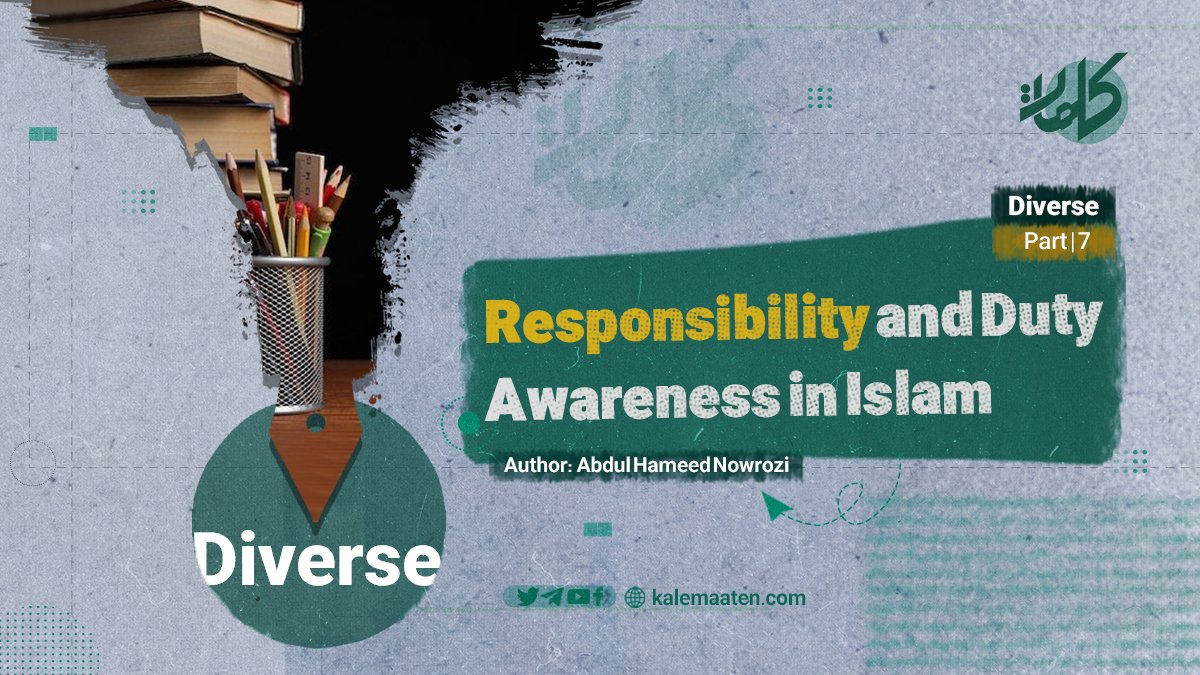
Author: Abdul Hameed Nowrozi
Responsibility and Duty Awareness in Islam (Part 7)
The Responsibility of Doctors Towards Patients
The medical profession is a sacred trust placed in the hands of doctors, with patients relying on them implicitly. There is no greater, nobler, more important, or simultaneously more dangerous trust than that of the medical profession, the life and death of a patient hinge on the attentive or negligent behavior of the doctor. Whether it involves prescribing medication or performing surgery, the vigilance and accuracy of the physician—or their lack thereof—are crucial. Allah Almighty states: «إِنَّا عَرَضْنَا الْأَمَانَةَ عَلَى السَّمَاوَاتِ وَالْأَرْضِ وَالْجِبَالِ فَأَبَيْنَ أَنْ يَحْمِلْنَهَا وَأَشْفَقْنَ مِنْهَا وَحَمَلَهَا الْإِنْسَانُ إِنَّهُ كَانَ ظَلُومًا جَهُولًا» Translation: “We offered (our) trust to the heavens, the earth, and the mountains, and they refused to accept the trust and feared it, and man carried it; indeed, he is an ignorant oppressor.”
The refusal of the heavens, the earth, and the mountains to accept this trust was due to the gravity of its consequences and the accountability it entails before Allah on the Day of Judgment. Is there any greater and more significant trust than the human soul, which Allah has honored in the following saying: «وَلَقَدْ كَرَّمْنَا بَنِي آدَمَ وَحَمَلْنَاهُمْ فِي الْبَرِّ وَالْبَحْرِ وَرَزَقْنَاهُمْ مِنَ الطَّيِّبَاتِ وَفَضَّلْنَاهُمْ عَلَى كَثِيرٍ مِمَّنْ خَلَقْنَا تَفْضِيلًا» Translation: “Certainly, we have honored the children of Adam, and We made them ride on land and sea, and We provided them sustenance from pure blessings, and We granted them superiority over many of Our creations.”
A doctor must be caring and sincere in their work, fulfilling their duties with diligence. People trust doctors with their lives; thus, they must perform their responsibilities accurately and competently. Otherwise, they will be held accountable before Allah on the Day of Judgment and will undoubtedly bear the consequences of their negligence.
How many tragedies have unfolded, and how many lives have been lost due to medical carelessness? Too many doctors have placed patients’ lives at risk in pursuit of monetary gain, failing to meet their religious and moral responsibilities.
Responsibility Towards Work and Job
Islam is a religion that values hard work and effort. Within the framework of Islam, earning income through halal (permissible) means is regarded as one of the highest forms of worship, akin to striving in the path of Allah. A diligent person, therefore, enjoys not only material rewards but also spiritual benefits in the hereafter.
Moreover, when all professions and occupations—be it manufacturing, distribution, or service—are conducted in alignment with Sharia (Islamic law), they not only ensure the sustenance of individuals and their families but also maintain their honor and the honor of their families. These endeavors serve society, bringing joy to others and alleviating sorrow. Consequently, this brings forth numerous worldly and spiritual rewards.
However, it is essential to remember that a Muslim must feel a sense of responsibility toward their work and execute it with integrity. Idleness, shortchanging, cheating, accepting bribes, and demanding compensation for work without the requisite expertise are signs of a lack of commitment and responsibility. Such behaviors lead to the infiltration of haram (forbidden) wealth into one’s life.
Responsibility Towards Society
In Islam, worshiping and drawing closer to Allah are not confined to acts such as prayer, fasting, or Hajj. Fulfilling social responsibilities, including kindness and service to Allah’s servants, and addressing their troubles, when done with the intention of seeking closeness to Allah, are among the greatest acts of worship.
While financial need is a widespread challenge impacting many families, benevolence and assistance to others extend beyond mere financial aid. Helping others can involve physical assistance, offering guidance, or engaging in efforts to resolve problems. Doing so alleviates grief for fellow believers and involves acts like counseling, mediating marriage, supporting others in starting their own families, promoting good deeds, showing compassion, and striving to meet the needs of people. These actions exemplify charity in the broader sense.
Continues…


